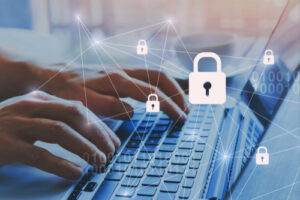By: Edward L. Blais, JD, CIC, CPIA

Cyberattacks aren’t just something big business and government agencies have to worry about. They are also a major threat to individuals and homeowners.
So much so that it is becoming common for preferred insurance carriers to offer cybersecurity as an endorsement to homeowner’s insurance policies.
In 2016, Norton, which is known for its antivirus software, said that 689 million people in 21 countries had been the victims of cybercrime, costing $126 billion. In 2020, global losses due to cyberattacks reached $1 trillion, over one percent of global GDP, according to McAfee, another cybersecurity company.
Individuals are particularly vulnerable as they don’t have the resources that a large corporation or government agency may have to respond to a cyberattack.
An estimated 900 individuals for every 100,000 people is a victim, with an average loss of $4,476 per crime, according to Comparitech, a computer electronics consumer information company.
The days of just downloading an antivirus software program and then forgetting about cybersecurity are over. Online hackers have become far more sophisticated, finding multiple ways to get access to your private data. Yes, of course, a robust antivirus program is still a good idea. But you need to take other steps to protect yourself. These include:
Having a strong hacker-proof password. This is essential. According to one estimate, password issues are linked to 81 percent of all breaches. Some basic tips: Don’t use information that can be linked to you, like your name, or street name. Do create longer passwords. Some tips may seem contrary to common sense: if necessary, write down your hard-to-remember password on some paper. That may seem like a bad idea from a security perspective, but think about it – a physical sheet of paper is one thing online hackers aren’t ever going to be able to breach. For more password advice see these tips and guidelines here and here.
Protect yourself against phishing attacks. Here is an example of where your garden-variety antivirus software probably isn’t going to be of much use to you. In phishing attacks, someone will send you an email posing as your bank, employer, or other trusted source, aiming to get you to response and disclosure personal information, which can then be used to steal your data and commit other crimes. In this instance, your best defense isn’t a software program, but yourself. And it begins by a simple rule: don’t open any emails from people you don’t know. Don’t give out personal information via email to sources you don’t know. Don’t downloading attachments from unknown sources. Don’t click on any suspicious links. For more tips on how to fend off phishing attacks, see here.
Use two- or multi-factor authentication. This is becoming an increasingly common cybersecurity practice. The basic idea is that you need to enter in a code or apply your fingerprint in addition to a password. Often two-factor authentication is achieved through sending a text message, although this doesn’t meet the current highest standards for cybersecurity. For more information about how to use two-factor authentication as an individual consumer, see this article in PC Magazine.
Install the right digital safeguards. As mentioned earlier, a basic antivirus software program may not be enough. It is one arrow among many in your quiver of cybersecurity. That said, definitely make you don’t neglect this important step. This article explains how to pick one. Also keep in mind that antivirus software is not the same thing as an antimalware program or firewall. You don’t necessarily need all three. It comes down to the kind of protection you want. Viruses are a type of malware, distinguished by their self-replicating ability, while malware is any kind of malicious programs, including those that steal your data. While antivirus and antimalware focus on finding threats, firewalls work by screening all internet traffic, letting only in those sites that the program – or you – have decided are safe. For a more detailed explanation of the differences between antivirus and antimalware programs see here. For the differences between antivirus and firewalls see here.
Be cautious with wireless networks. Avoid using public WiFi. At home, secure your wireless network with a password. Also secure your phone with a password. Only download apps from trusted sources or app stores. For more tips on how to protect your cell phone, see here.
Back up your data. Be wary of relying on cloud backups, as these tend to just mirror what’s on your hard drive. Backing up your data to a digital hard drive is your worst-case protection against cyberattacks. Using an automatic backup program ensures this gets done even if you forget to do it. Here’s a look at some of the top backup programs for Windows and here are some free alternatives.
We hope you find these tips useful and provide you with a sense of security. As always, if you want to explore what your insurance options are for cybersecurity, we at Blais Insurance are available to answer your questions.
